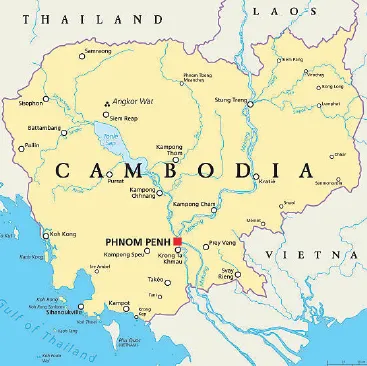During a talk, a discussion about Cambodia popped up. Most of the audience categorized it as an underdeveloped nation somewhere in South Africa. However, a moment of skepticism prompted when one of the listeners in the audience did a quick online search, unraveling the collective misconception. Surprisingly, after knowing Cambodia is actually situated in Southeast Asia, the baffled audience felt their preconceived notion being challenged.
This exemplifies how deep-seated ideas/information can mislead people. This small incident underscores the importance of fact-checking and highlights the pliability of shared perceptions that can be reshaped by accurate information.
In fact, it is a common human inclination to cling obstinately to embedded ideas and thoughts, even when they may be influenced by false memories or inexact information—a phenomenon known as the Mandela Effect. This effect occurs when people believe that their distorted memories are, in fact, accurate recollections. People suffering from this effect can clearly remember events that actually happened differently or events that never occurred at all. Quite paradoxical!
The term Mandela Effect describes a condition where a group of people collectively remember an incident or fact differently from the way it occurred. The origin of this term stems from the shared false memory of Nelson Mandela’s death in prison in the 1980s, when, in reality, he was released in 1990 and went on to become the President of South Africa. This collective misremembering raises intriguing questions about the flexibility and fallibility of human memory. Memory emerges as a naturally imperfect system since the connections in our brain keep changing; affecting how we remember things, or more precisely, altering how we recall events. The baggage of presuppositions and the half truths in our brain distorts the reality in front of us.
Of course, embedded ideas and opinions often spring from our experiences, upbringing and societal influences. However, these mental frameworks can sometimes be inaccurate or misleading. The Cambodia episode exemplifies how a group of individuals unanimously held a wrong belief, highlighting the fickleness of human thoughts.
Shunning dogmatism and cultivating moderation in thinking is a key aspect of mitigating the impact of fixed opinions and thoughts. Acknowledging that our opinions/beliefs can be utterly flawed, and being open to reassessment, is quite crucial. The Cambodia episode taught me that even seemingly concrete ideas can crumble in the face of new, exact information. Resigning ourselves to reality allows us to revise our perspectives and opinions, augmenting intellectual growth in our future journey.
Dogmatism often stems from an unwavering belief in the so-called accuracy of one’s own thoughts and feelings. However, recognizing that different perspectives also exist encourages and promotes realistic understanding. Such an approach opens up avenues for renewed learning. It’s a humbling acknowledgment that no one possesses a monopoly on knowing the truth. Owning up our erroneous understanding and correcting our perception is an open and unrelenting challenge of human life. Nothing should stop us from bracing it up with all humility.
The Mandela Effect showcases the unreliability of human recollection. The enigma of false memories, whether at an individual or collective level, can be amazingly appalling. This serves as a cautionary chronicle, urging us to approach our own memories and the memories of others with a considerable degree of skepticism. Accepting gracefully the potential for error in understanding and judgment develops a culture of modesty and everlasting learning.
In a world swamped with deluge of information, dissimilar opinions and perspectives, embracing cognitive flexibility becomes imperative for personal as well as societal harmony. True intellectual growth necessitates an ongoing process of unlearning and relearning which in the long run empowers us to evolve sensibly and serenely. As we navigate a world full of ugly complexities and nasty nuances, the Cambodia discussion for me was not just a correction; it was an invitation to explore the intricacies of a country situated far from our initial assumptions. It served as a microcosm of this broader truth.







